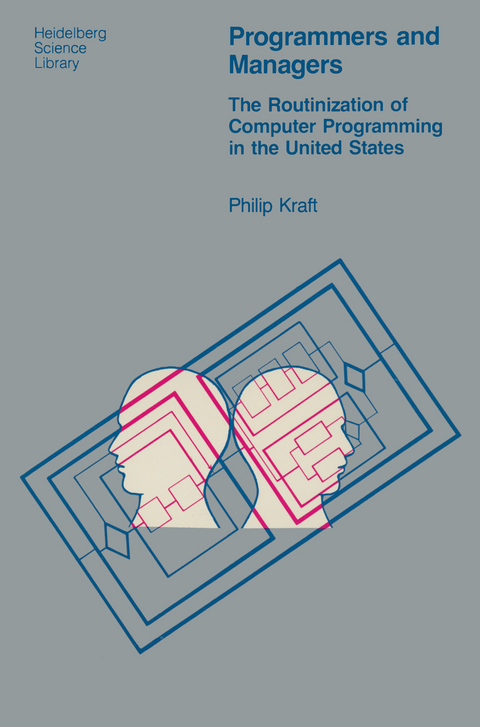
Programmers and Managers
Springer-Verlag New York Inc.
978-0-387-90248-7 (ISBN)
Norbert Wiener, perhaps better than anyone else, understood the intimate and delicate relationship between control and communication: that messages intended as commands do not necessarily differ from those intended simply as facts. Wiener noted the paradox when the modem computer was hardly more than a laboratory curiosity. Thirty years later, the same paradox is at the heart of a severe identity crisis which con fronts computer programmers. Are they primarily members of "management" acting as foremen, whose task it is to ensure that orders emanating from executive suites are faithfully trans lated into comprehensible messages? Or are they perhaps sim ply engineers preoccupied with the technical difficulties of relating "software" to "hardware" and vice versa? Are they aware, furthermore, of the degree to which their work whether as manager or engineer-routinizes the work of others and thereby helps shape the structure of social class relation ships? I doubt that many of us who lived through the first heady and frantic years of software development-at places like the RAND and System Development Corporations-ever took time to think about such questions. The science fiction-like setting of mysterious machines, blinking lights, and torrents of numbers served to awe outsiders who could only marvel at the complexity of it all. We were insiders who constituted a secret society into which only initiates were welcome. So today I marvel at the boundless audacity of a rank out sider in writing a book like Programmers and Managers.
Programmers, managers, and sociologists.- Expanding the data base.- How this study is organized.- A note on software scientists.- 1 Computers and the people who make them work.- The division of labor in programming.- Programmers as engineers.- The computer and how it grew.- Separation of user and programmer.- References.- 2 The organization of formal training.- The engineering heritage and its consequences.- Adapting tradition.- Programming and the academy.- References.- 3 De-skilling and fragmentation.- The de-skiller de-skilled.- Programming as mass production work.- References.- 4 The programmer’s workplace: Part I the “shop”.- The social structure of the programming workplace.- References.- 5 The programmer’s workplace: Part II careers, pay, and professionalism.- Careers for coders and low-level programmers.- Careers for managers.- Careers for technical specialists.- Pay.- Professionalism.- References.- 6 The routinization of computer programming.- Management practice and the de-skilling of programmers.- Predictions and other essays in prophesying.- The future programmers and programming.- References.
| Reihe/Serie | Heidelberg Science Library |
|---|---|
| Zusatzinfo | 118 p. |
| Verlagsort | New York, NY |
| Sprache | englisch |
| Maße | 155 x 235 mm |
| Themenwelt | Sachbuch/Ratgeber ► Beruf / Finanzen / Recht / Wirtschaft ► Bewerbung / Karriere |
| Informatik ► Software Entwicklung ► User Interfaces (HCI) | |
| Mathematik / Informatik ► Informatik ► Theorie / Studium | |
| Informatik ► Weitere Themen ► Zertifizierung | |
| Wirtschaft ► Betriebswirtschaft / Management ► Wirtschaftsinformatik | |
| ISBN-10 | 0-387-90248-1 / 0387902481 |
| ISBN-13 | 978-0-387-90248-7 / 9780387902487 |
| Zustand | Neuware |
| Haben Sie eine Frage zum Produkt? |
aus dem Bereich


